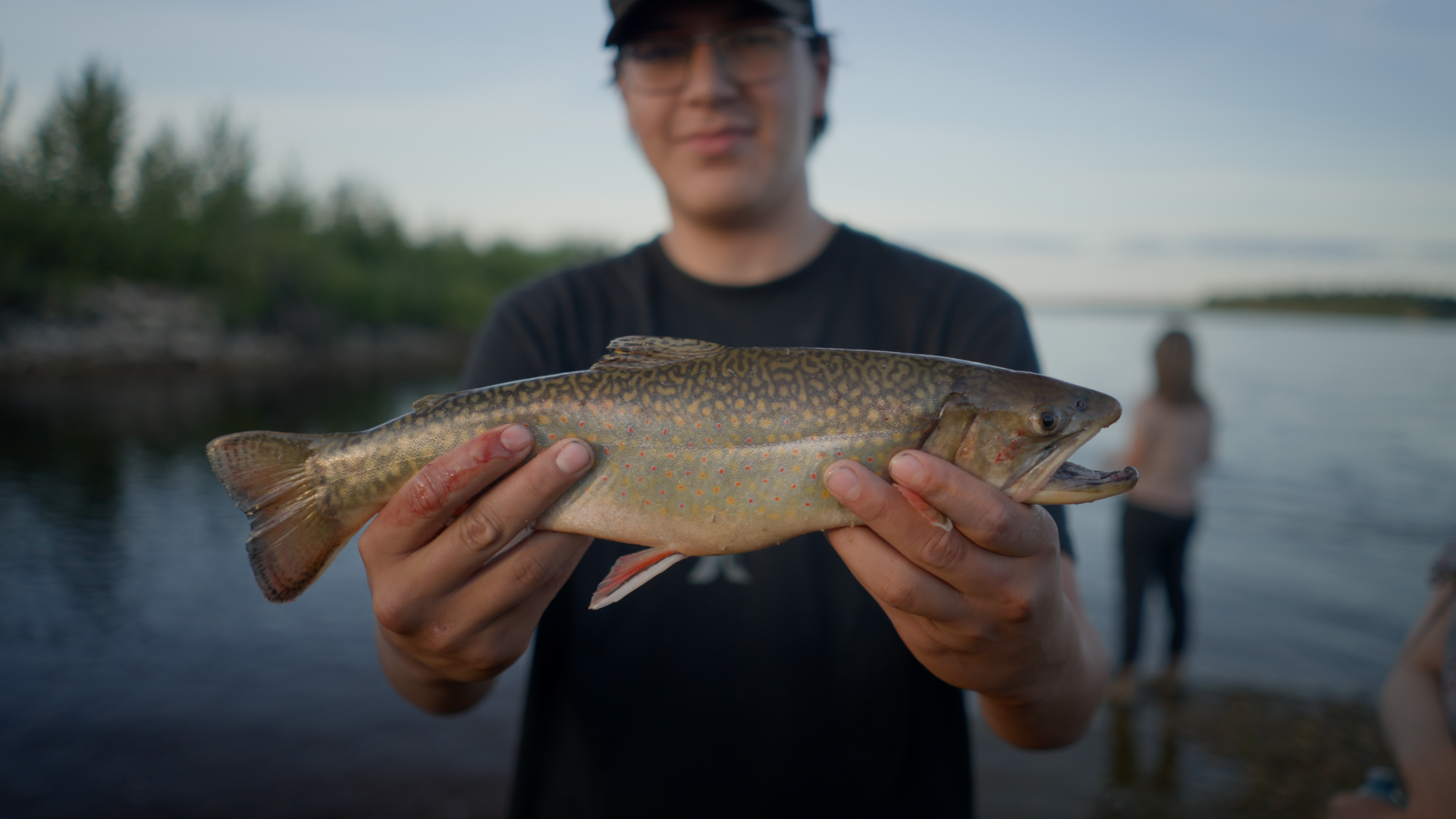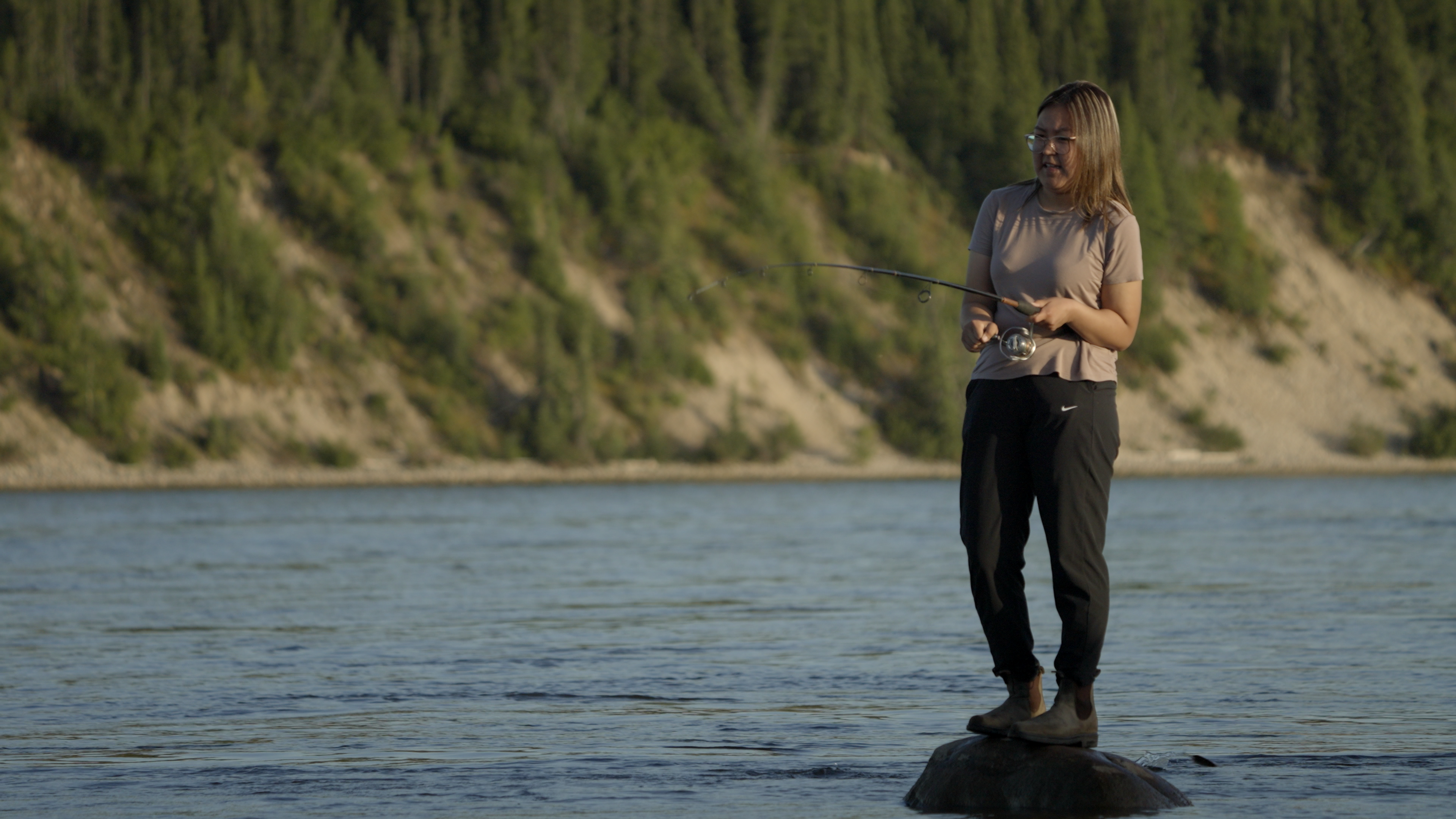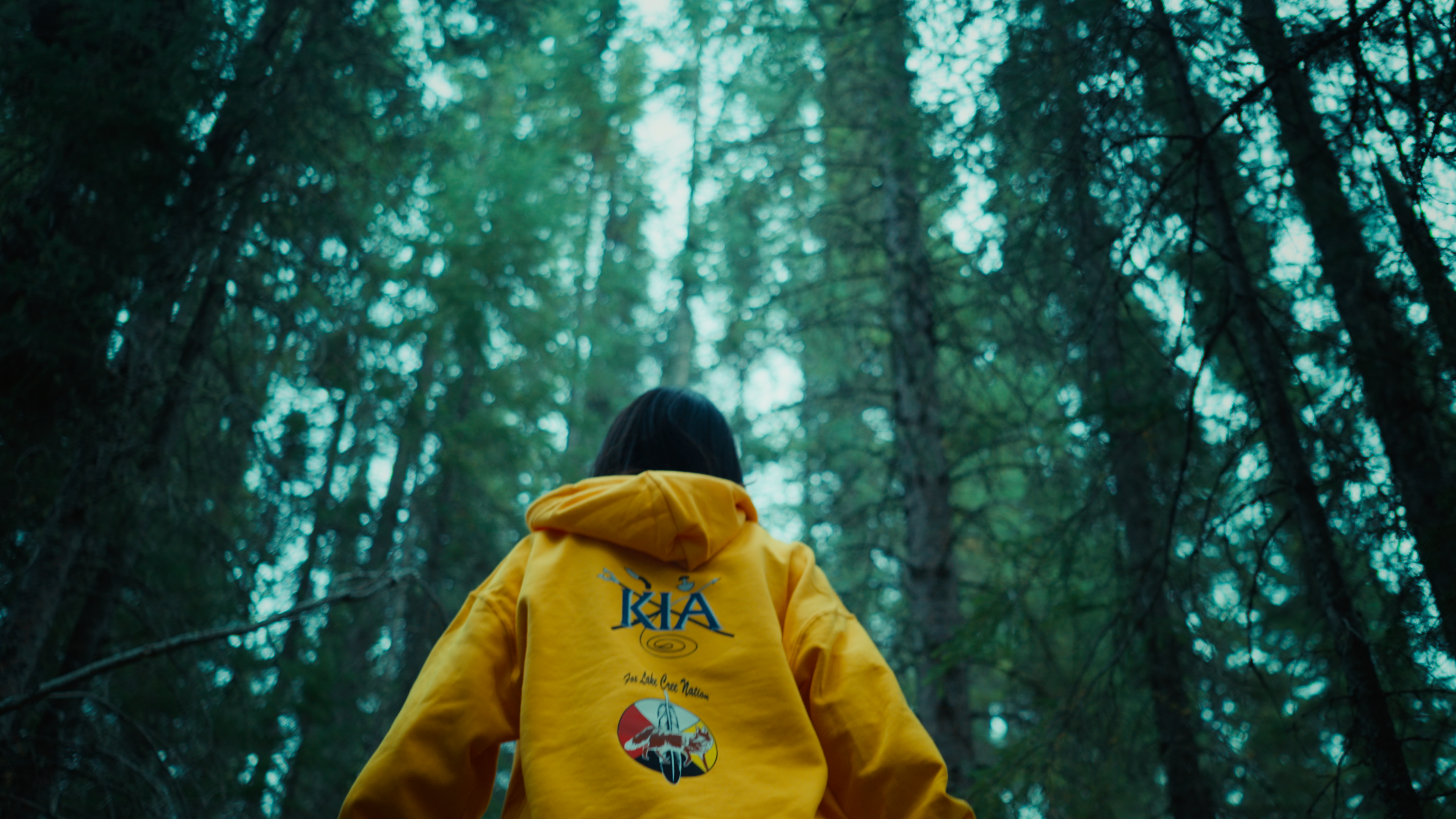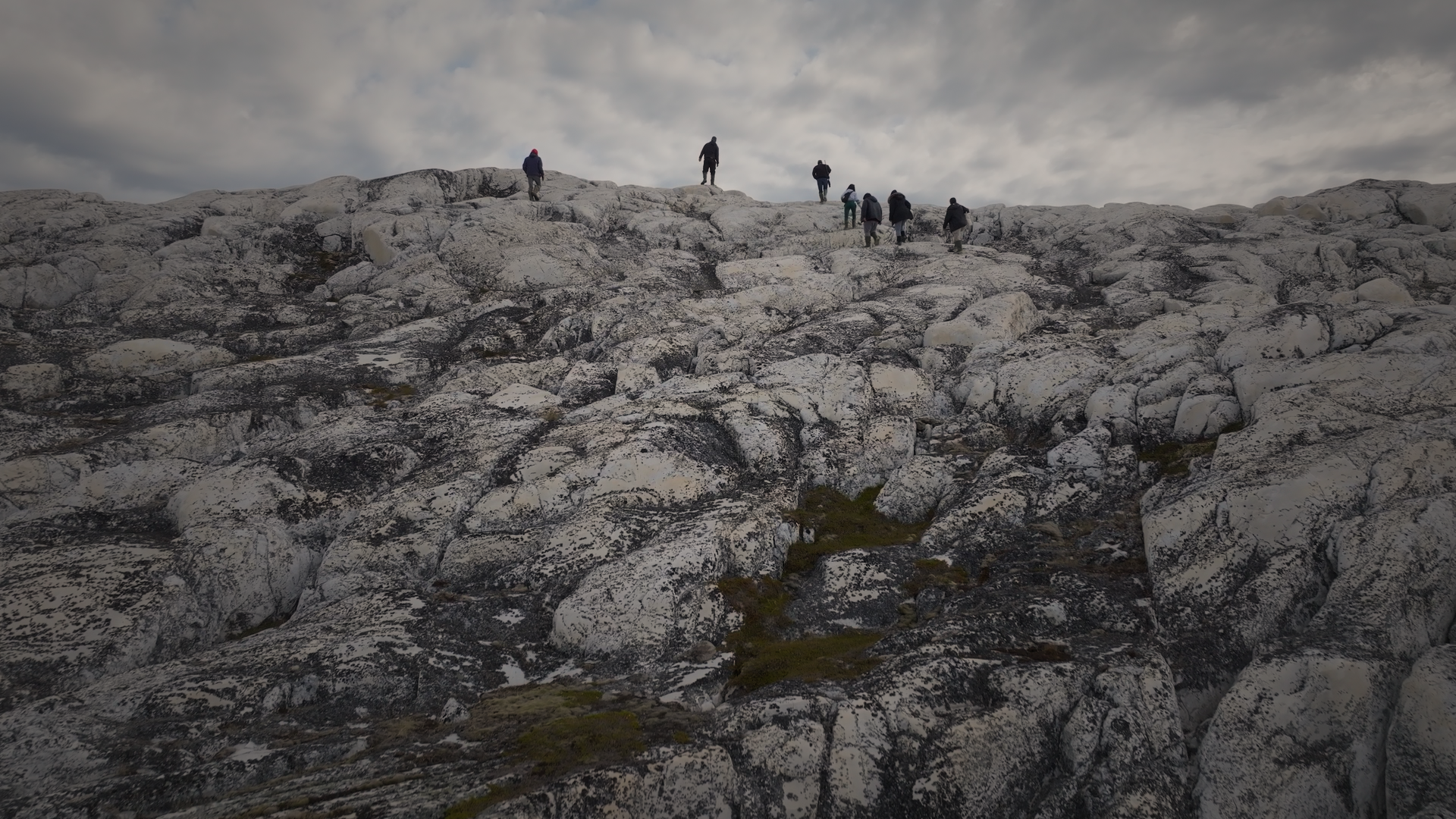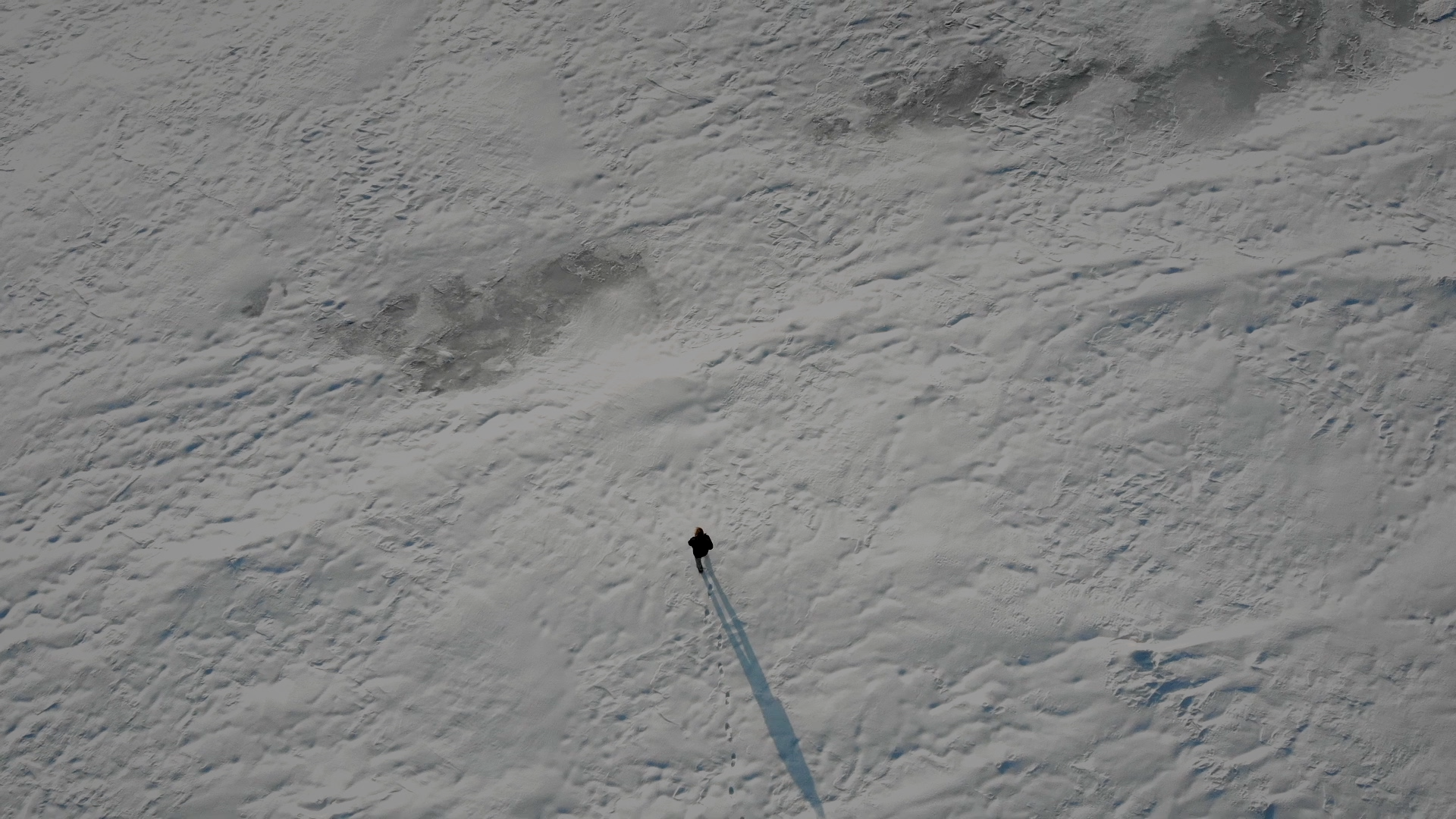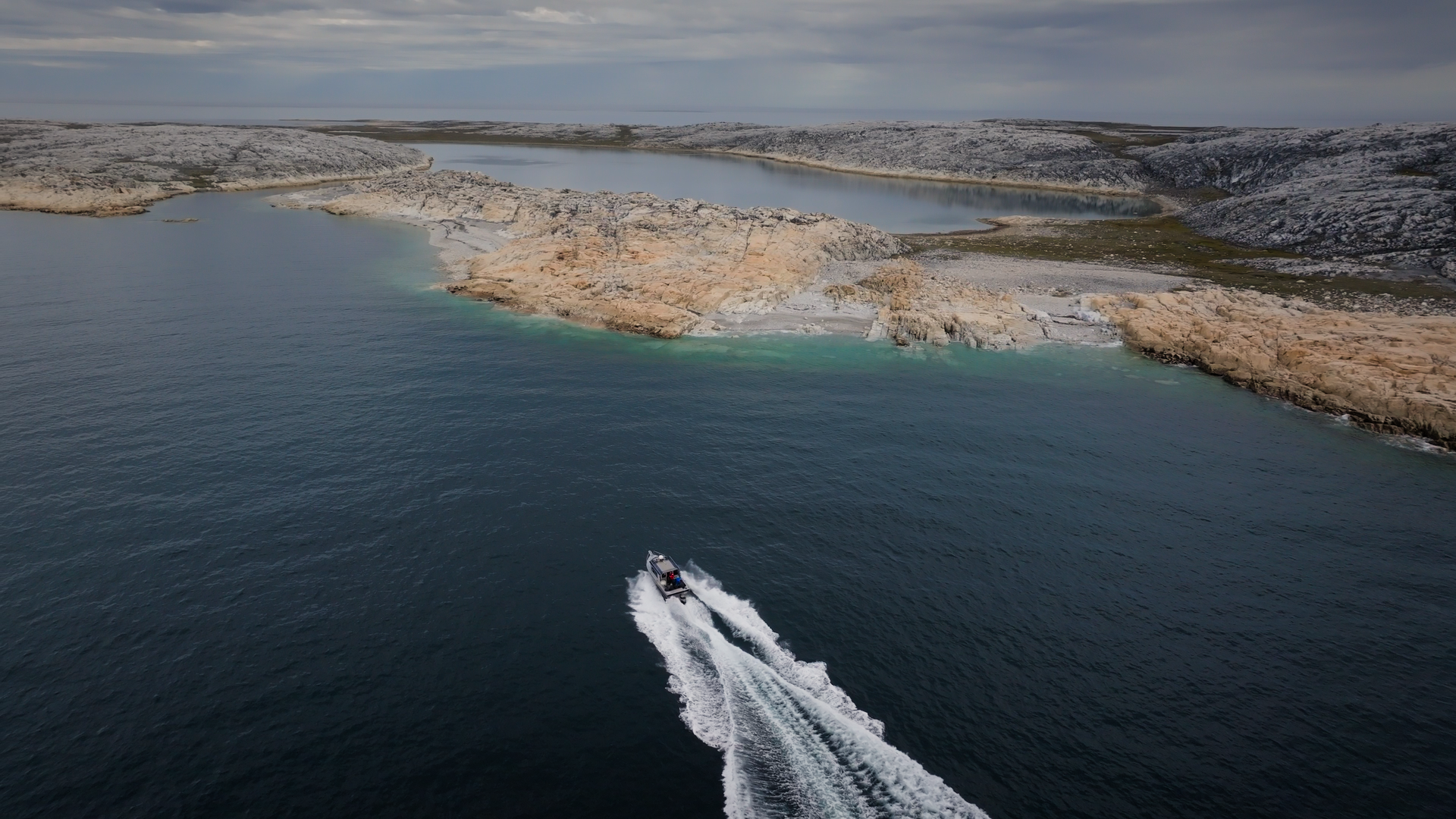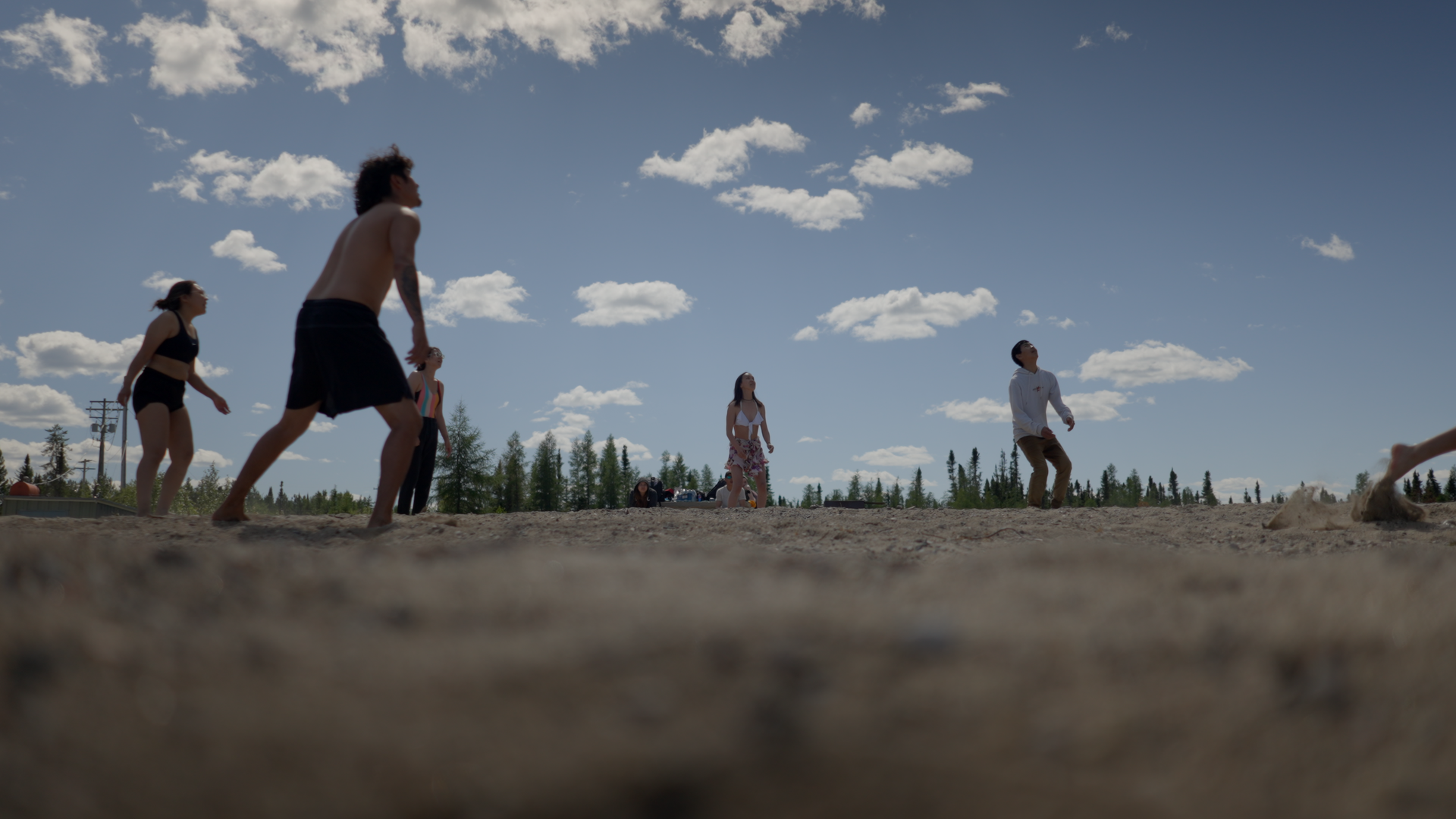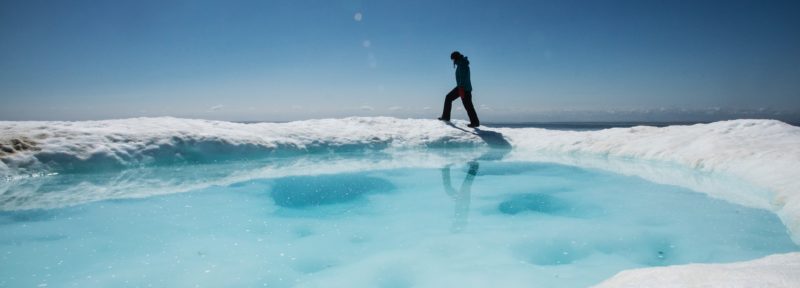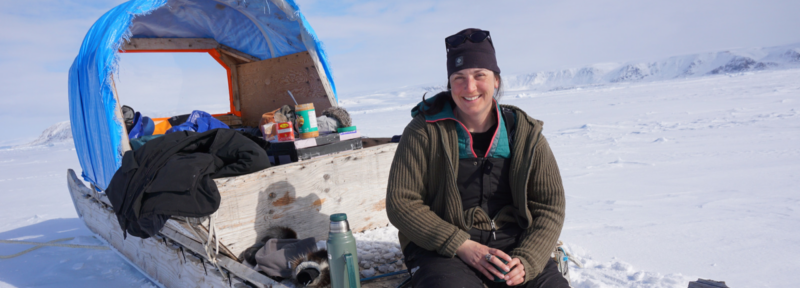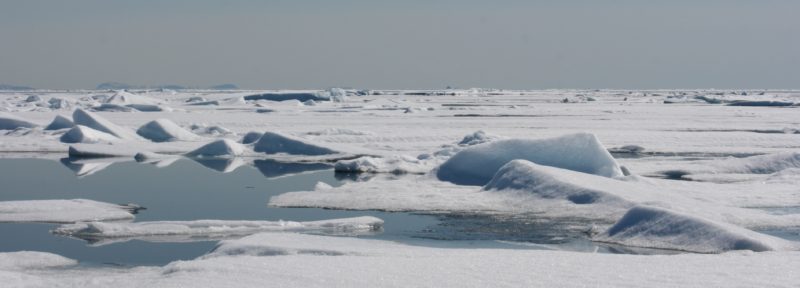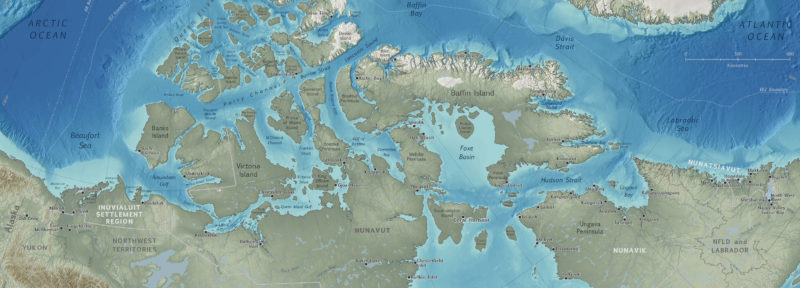Creating Connections in Western Hudson Bay
A brook trout, caught while youth fish during their exchange.
Credit: The Climate and Us
“Holy smokes, that’s a nice brookie!”
Along a branch of the Nelson River in the homelands of the Fox Lake Cree Nation, an Inuk youth from Rankin Inlet—a community in Nunavut nearly five hundred miles to the north—pulled up a brook trout, its gold speckles gleaming in the late summer light. He smiled as he held up the fish; it didn’t look so different from the Arctic char that were beginning to run up the rivers near his own town.
“That’s going in the smoker,” said Drayden Jobb, an Environmental Monitor with Fox Lake Cree Nation. It had been his idea to bring their Inuit guests out fishing: despite the cultural and physical distance between their communities, harvesting from the lands and waters was something that connected them both to their own homes and to one another. At the end of the week, the fish they caught would be served during a community feast.
Both communities share abundant coastal and upstream environments.
Credit: The Climate and Us
It was more than a fishing trip—Jobb was one of the chaperones of a recent youth exchange between his community of Fox Lake and Rankin Inlet, and recognizing and developing these kinds of connections was what these two weeks were all about. The exchange, supported by Oceans North, brought together Inuit and Cree youth for on-the-land learning and cultural activities in both communities. Now, a new video from the Moore Foundation produced by BBC Storyworks Commercial Productions tells the story of the exchange and why it mattered both to the youth and to the incredible ecosystem they share.
Rankin Inlet’s youth arrived in Gillam to learn about the customs and traditions of Fox Lake Cree Nation.
Credit: The Climate and Us
While Inuit from Rankin Inlet and Cree from Fox Lake have not had much interaction between one another in the past, they are connected by the interdependent ecology of Western Hudson Bay and relationships with animals that migrate across the region. They share an interest in the continued health and well-being of the area in the face of accelerating climate change and increasing industrialization.
The Fox Lake Cree Nation people are doing a youth exchange with the Kivalliq Inuit for the first time.
Credit: The Climate and Us
Over the last few decades, this remarkable place has undergone major changes that have altered the landscape, with consequences for the communities that rely on it. Even teenagers have observed shifts in their own lifetimes. “Oh yeah, I’ve seen climate change, big time,” said Carter, one of the Inuit youth participating in the exchange. “Six years ago […] the snow would come a lot earlier, it would go away a lot later. It’s a big change, definitely, I would say.”
There is a common goal in protecting Hudson Bay's wellbeing from the effects of climate change and industrialization.
Credit: The Climate and Us
Given all these changes, sustainable stewardship of the region is more important than ever—which is where the youth exchange comes in. The scale of these challenges will require learning and cooperation that spans peoples and geographies. Nevertheless, these communities, which have safeguarded their lands and waters since time immemorial, are up to the challenge. “We’re resilient as Inuit and as a community,” said Christine Tootoo, the Kivalliq Inuit Association’s Youth Coordinator. “We’ve had no choice but to adapt and change in order to live and thrive in today’s society.”
The communities have a mutual interest in protecting the lands and waters that connect their homes.
Credit: The Climate and Us
Oceans North has been working in Western Hudson Bay for over a decade and has advocated for the creation of a National Marine Conservation Area in the region. Led by the federal government, such an area would bring together the province of Manitoba alongside Parks Canada, Indigenous communities to monitor, manage and protect its natural abundance for present and future generations.
The goal of the exchange is to make connections across cultures to support stewardship of the lands and waters in the region.
Credit: The Climate and Us
For now, the exchange has created memories and connections that will last for many years—and, with this video, perhaps inspire change beyond these communities. After all, protecting Western Hudson Bay will also mean addressing the climate crisis. “This land and the place that we live in is a place that has always sustained us,” Tootoo said. “My greatest hope for the future generations is that we have a planet that we can survive on, live on and thrive on.”
Alex Tesar is the communications manager at Oceans North.

